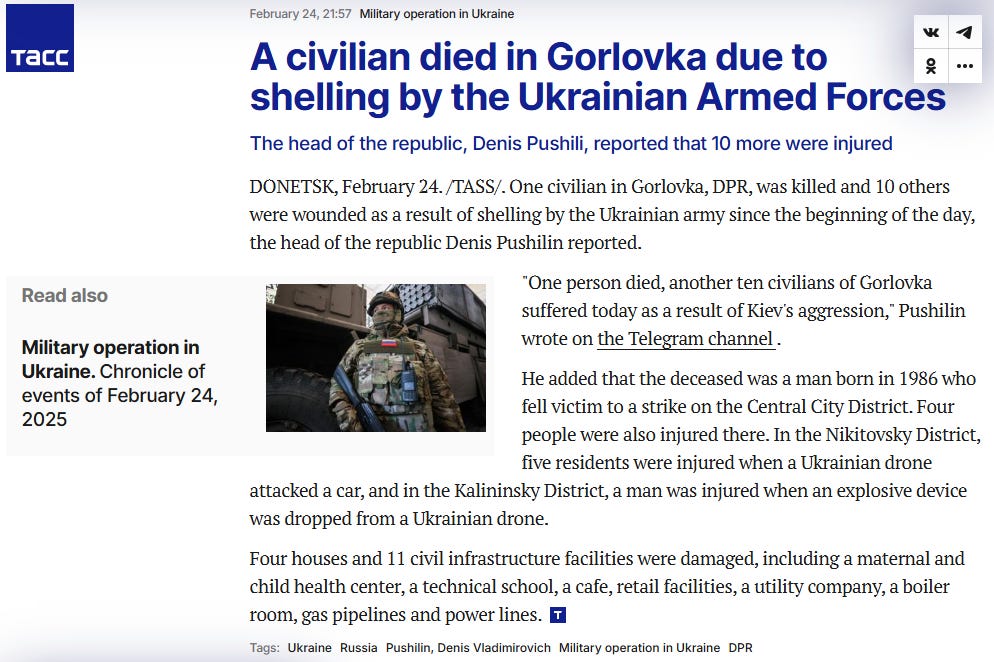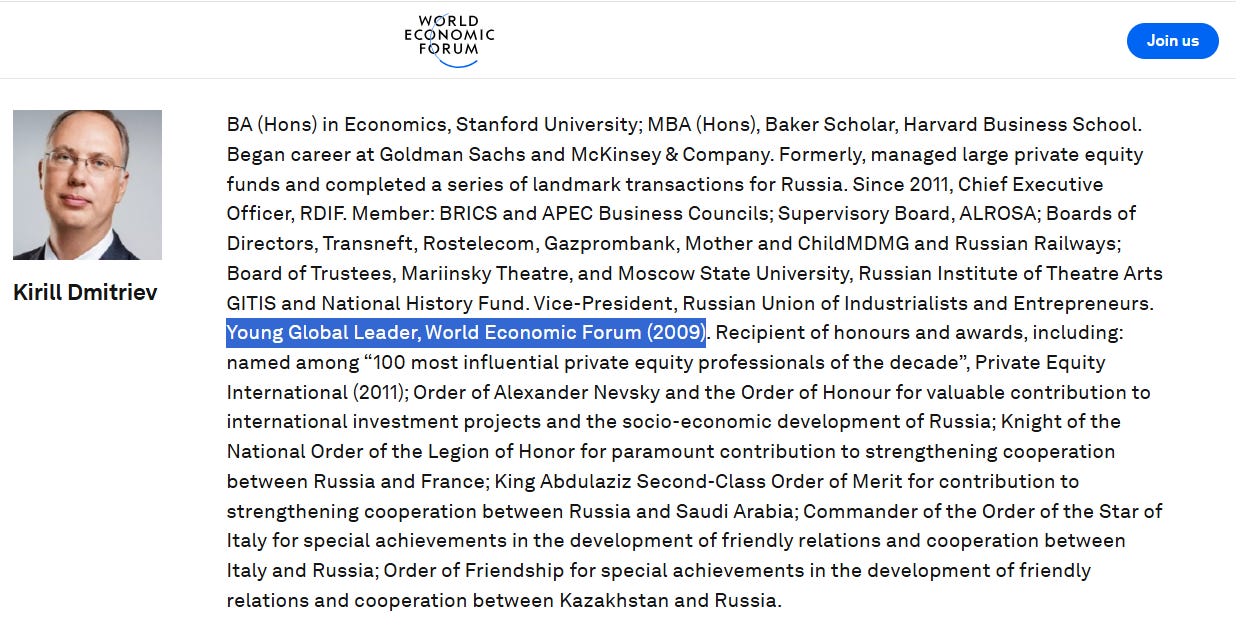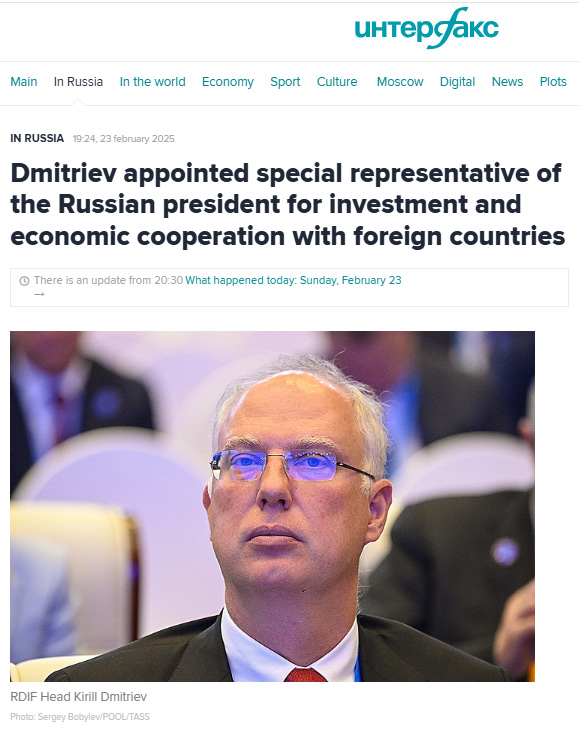These two articles were brought to my attention by Prof. Geoffrey Roberts:
A correspondent has pointed out to me that while there was no general election in Britain between 1935-1945, there were 200 parliamentary by-elections, including many during the war which featured candidates highly critical of the government. There was very lively political discussion in Britain throughout the war, not least at the height of the German Blitz. Pro-Fascist organisation were banned and their leaders interned but the British communist party remained legal and waged a massive anti-war campaign before the Soviet Union entered the conflict in June 1941 (though the party’s newspaper was temporarily prohibited). Members of leftist organisations that continued to resist war were imprisoned (including my late father-in-law), but for refusing to serve in the armed forces even in auxiliary capacities (which is what the Quakers and other pacifists did). – Prof. Geoffrey Roberts
Why shouldn’t Ukraine hold elections?
By Branko Marcetic, Responsible Statecraft, 2/24/25
For three years now, the U.S.-NATO policy of eschewing peace talks in Ukraine and pursuing a hypothetical and increasingly unlikely military victory has been predicated on defending democracy.
Ukraine, we were told, has a vibrant, flourishing democracy, and preserving its survival is worth any cost — including the tremendous loss of life, physical destruction, and economic devastation borne by the country as a result of this policy.
Yet now, Western media and commentators are in a state of panic at simply the idea that Ukraine might have to do what they’ve been saying is the entire mission of the war effort: act like a democracy.
A little background: Ukraine should have held a presidential election last year, but with the government having declared martial law shortly after the Russian invasion in February 2022, that election has been indefinitely delayed until it is lifted. That move has been controversial, including in Ukraine, where critics have complained that Zelensky — whose popularity has dropped significantly since the start of the war, and who has suspended opposition political parties, arrested, intimidated, and sanctioned potential rivals, consolidated media under his control, and generally centralized power — is using it to avoid being removed from office.
Peace negotiations have thrown a further wrinkle into this, as Fox News reported, one of the possible stages of a three-stage peace plan discussed in U.S.-Russia talks to end the war would be for Ukraine to hold elections after a ceasefire, and before the settlement is signed. It is still far from clear whether holding an election would actually be in the mix, however, as a U.S. source later walked it back, Russia’s foreign minister denied the report, and the idea hasn’t popped up in other reporting on the discussions.
In any case, one would think that, given the overwhelming concern for Ukrainian democracy among war hawks, an election in the near future would be enthusiastically welcomed. After all, it would not only give Ukraine the chance to demonstrate its democratic bona fides, but it would also prove wrong Trump’s claim that Zelensky is a “dictator,” undermine a key part of Russian President Vladimir Putin’s propaganda, and give the Ukrainian president a renewed popular mandate.
Instead, as a host of Western commentators and news outlets now charge, a democratic election in Ukraine is not only impossible, but would be dangerous, wrong, and even part of a sinister Kremlin plot.
British journalist and media personality Piers Morgan called the idea “ridiculous,” pointing to the UK’s suspension of elections during World War II. Popular Twitter commentator Aaron Rupar likewise declared it “beyond ludicrous” for Ukraine “to hold an election when the country is an active war zone and 20 percent of it is under foreign occupation.” CNN anchor Jim Sciutto suggested the Kremlin would rig any election and possibly try and assassinate Zelensky.
***
Wartime Elections as Democratic Backsliding
By Oleksandr Vodiannikov, Website, 9/27/23
Oleksandr Vodiannikov, PhD, LLM, is a member of Ukraine’s Law Reform Commission and previously served as a member of Ukraine’s Judicial Reform Council and of the Constitutional Commission.
The topic of the next elections to the Verkhovna Rada (Parliament) of Ukraine unexpectedly surfaced in public discourse towards the end of spring this year. In May 2023, PACE President Tiny Kox called for free and fair elections, despite the ongoing war. In July 2023, the Speaker of the Verkhovna Rada, Ruslan Stefanchuk, cautiously noted that there is no constitutional ban on holding elections during martial law, suggesting that the issue can be open for discussion. In September 2023, when questioned on the matter at the annual Yalta European Strategy conference in Kyiv, the President of Ukraine did not rule out such a possibility, but highlighted several practicalities that made elections unfeasible. “It is not a question of democracy. It is a question of security,” he stressed.
According to various press reports (see e.g. here, here, and here) Ukraine’s Western allies are urging the Ukrainian Government to organize elections despite the hostilities, often citing Israel as an example.
Indeed, if it were not for the war, Ukraine would already be in the midst of the election process, as the next parliamentary ballot was supposed to be held on the last Sunday of October this year. However, on February 24, 2022, the world changed. The constitutional order of Ukraine also changed with various extraordinary mechanisms designed for extraordinary situations put in motion. This raises a logical question: can the next parliamentary elections be held under these conditions?
Julia Kyrychenko and Olha Ivasiuk’s recent article on Verfassungsblog outlines major legal and practical obstacles to holding wartime elections in Ukraine. In their illuminating analysis, the authors make a strong case against wartime elections, a viewpoint largely shared by civil society.
My argument is a bit different. I will argue that (1) wartime parliamentary elections are expressis verbis inconsistent with the Ukrainian Constitution, and (2) wartime elections would undermine the legitimacy of democratic institutions and potentially lead to democratic backsliding.
Elections under extreme conditions: what does Ukraine’s Constitution say?
The prohibition of wartime elections is established in statutory law. Article 19(1) of the Law of Ukraine “On the Legal Regime of Martial Law” prohibits the holding of elections for the President of Ukraine, as well as elections to the Verkhovna Rada of Ukraine, the Verkhovna Rada of the Autonomous Republic of Crimea, and local self-government, under martial law. The Electoral Code of Ukraine also provides for the suspension of any electoral process from the moment martial law is introduced (Article 20).
The constitutional text is no less straightforward: In the case of martial law or a state of emergency, Article 83(4) of the Constitution provides for the extension of the Parliament’s powers until the day of the first meeting of the first session of the Verkhovna Rada of Ukraine, elected after the termination of martial law or state of emergency. The wording of this provision leaves no room for ambiguity– Parliament shall be elected after martial law is lifted. Thus, there are grounds to argue that no parliamentary elections can be constitutionally held during martial law.
While the Constitution cannot be amended during martial law (Art. 157(2)), statutory law can. If the electoral legislation is amended to allow wartime elections, it would be a valid law of the land until the Constitutional Court of Ukraine declares it unconstitutional (presumption of constitutionality). Therefore I would not rule out such a scenario with legislative enactment if international pressure increases. However, under extreme conditions of war, can free and fair elections be held and can the expression of will be free as required by Art. 71 of the Constitution?
Julia Kyrychenko and Olha Ivasiuk have already discussed the practical, security, and human rights implications of the wartime electoral process. In the realm of constitutional law, they supplement a key argument – wartime elections infringe the democratic principles of the Constitution (Article 1 “democratic state” and Article 71 “free elections”).
The Constitution of Ukraine establishes the principle of a democratic state (Art. 1), whereby all public authority emanates from the people. This principle extends beyond elections and directly influences the principle of free elections under Article 71. Elections provide democratic legitimation, but only if they are free and fair. This means not only must the actual act of voting remain free of coercion and undue pressure, and the right to vote of eligible voters not be removed or impaired, but the entire electoral process be fair from start to finish. This is accomplished through numerous constitutional guarantees of freedom and equality as well as through institutional and procedural mechanisms.
The dilemma of wartime elections means the choice between two options: (1) holding elections that fall short of constitutional standards, or (2) suspending the electoral process until the end of the war. Here we need to look at another facet of the democratic state principle: democracy means self-determination of the people. Self-determination is based on the idea of free, rational, and informed choice. If democratic self-determination is to be meaningful, it necessitates certain pre-legal conditions, such as continuous free debate between opposing social forces, interests, and ideas.
War, crises, and other extreme conditions are periods of “moral panic” when the world and the course of things we know crumble. A society in such periods may be willing to agree to extraordinary measures, proposals or appeals that promise a swift return to normalcy. The constitutional order, democracy, rule of law, constitutional rights and freedoms become vulnerable because during such times there is an increased risk of irrational decisions. People may panic and support policies that are unreasonable and excessive, especially when the nation’s very existence is at stake.
Therefore, between the two options, suspending the electoral process should be favored. Even if martial law is suspended for the sake of elections and the election process is put into motion, it will be constitutionally suspicious and will likely be held in contradiction to the Constitution’s fundamental principles of a democratic state and free elections. Wartime cannot guarantee an environment where electoral process participants can freely and fully express their views and wills. It also cannot ensure that all citizens serving in the armed forces, seeking refuge abroad or surviving under foreign occupation can meaningfully participate in a competitive and vibrant political life. Therefore, the unfeasibility of wartime elections is as much a question of democracy as it is of security.
Elections during the war: legality versus legitimacy
The motives behind foreign allies urging Ukraine to hold elections despite the ongoing extreme conditions are clear: they aim to prevent Ukraine’s democratic backsliding. However, the risk of carrying ballot boxes through the trenches is similar: elections under extreme conditions would with high probability “cement” the current power constellations for the next 5-year term and at the same time undermine the public legitimacy of democratic institutions elected during wartime, thus creating a conducive environment for democratic backsliding.
Predicting the outcomes of potential elections during the war is speculative. There is no compelling precedent or case where a democracy in war, with a fifth of its territory occupied by an enemy or affected by active hostilities, has managed to conduct free and fair elections. Common wisdom tells not to change leaders in times of war. Wartime conditions have an impact on electoral choices, more so on electoral campaign dynamics and the fairness of elections. Therefore, even if the incumbent party majority in the Parliament lacks widespread popular support and would probably lose elections in peacetime, wartime conditions could provide it with a good opportunity to either consolidate its parliamentary representation or maintain the current status quo for the upcoming parliamentary term.
However, what is troubling is that wartime elections could merely pay lip service to democratic development.
The Verhovna Rada of Ukraine is the only directly democratically legitimized representative body that ensures state power is based on the people’s recognition and approval. This legitimation derives from Ukrainian citizens exercising their right to vote in parliamentary elections which, in turn, should comply with constitutional principles. If such a right is weakened due to the objective exigencies of wartime, Parliament would suffer an unsurmountable legitimacy deficit with all ensuing consequences.
First, elections that are constitutionally questionable can undermine the legitimacy of both the process and the elected Parliament. Tens of thousands of men and women on the frontline, as well as those surviving under occupation or seeking refuge abroad, would feel deceived and treated unfairly if they were not able to vote or stand for elections. This perceived injustice would create a new divide in Ukrainian society, posing a threat to post-war reconstruction.
Suspending martial law for the sake of elections would also not be well received by the Ukrainian society. Public resentment would affect the legitimacy of the newly elected Parliament, especially if upon reinstatement of martial law war casualties would increase. Discontent with politicians could inevitably lead to frustration with democratic institutions.
Secondly, war distorts rational choice and exacerbates societal divisions. While wartime sociological polls show a strong unity and cohesion among the Ukrainian people, underlying divisions remain, now intensified by subjective experiences and personal histories of war. These emotional aftershocks of personal experience, drama or, I would say, collective posttraumatic syndrome could transform into various scenarios of deterioration of the general psychological climate with corresponding consequences for democratic development.
Transitioning back to peacetime democracy would not be easy. The societal trauma of war will require a delicate treatment, including implementing transitional justice, promoting social cohesion, and ensuring effective and responsible functioning of democratic institutions. But what is more important, if a legislature is elected during wartime, post-war Ukrainian society would be deprived of the opportunity to resolve the country’s problems through dialogue and free debate inherent in the election process on competing visions of the nation’s future.
The story of Sir Winston Churchill is illuminating in this context. Britain suspended elections during World War II. At the end of the war, Churchill’s support in British society reached 83%. However, his party lost the post-war elections in 1945. The example of Winston Churchill shows that democratic elections are won not based on past achievements, but on visions for the future. When the basic instinct of a nation under extreme conditions threatening its very existence is survival and return to normality, the future does not exist in this sense.


